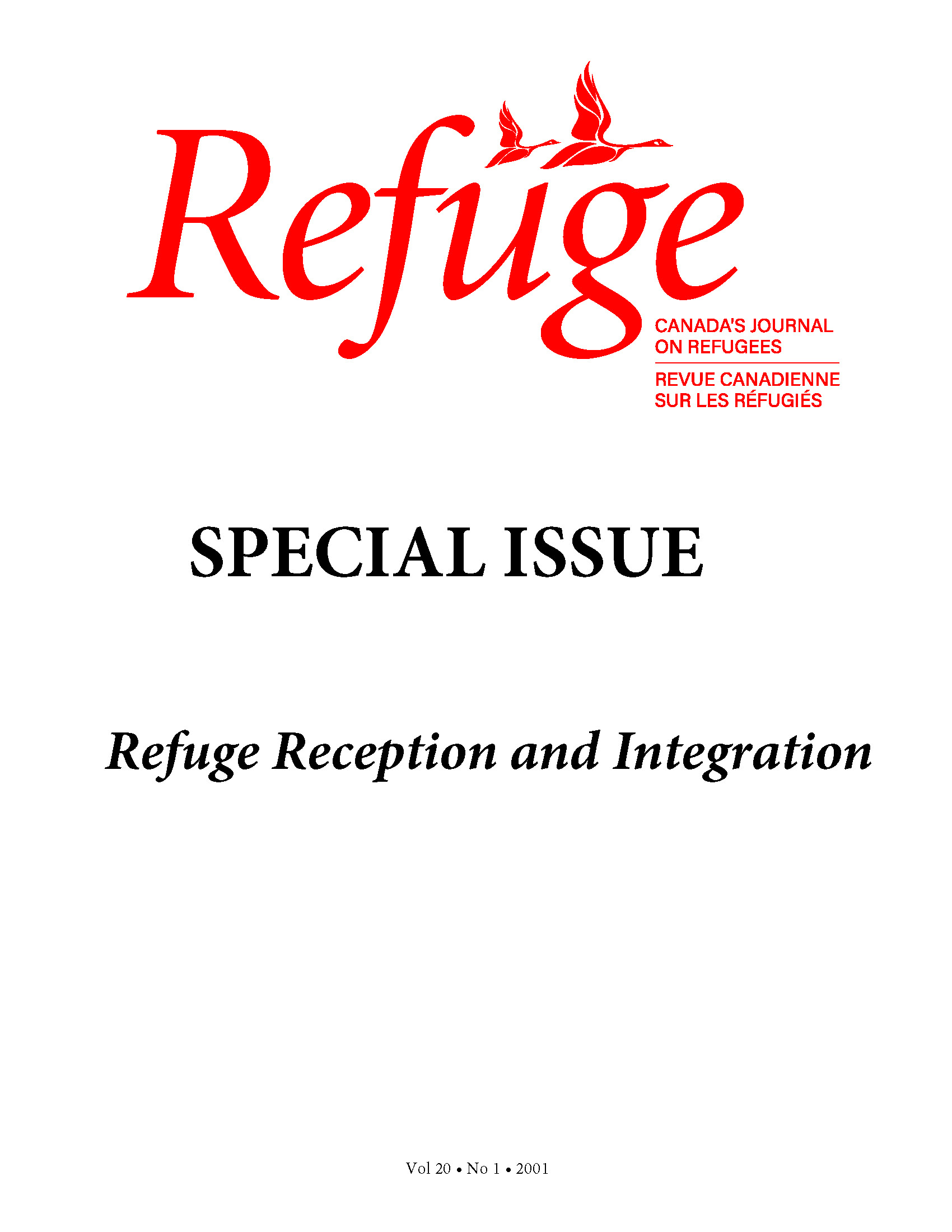The Path to Integration: Meeting the Special Needs of Refugee Elders in Resettlement
DOI:
https://doi.org/10.25071/1920-7336.21244Keywords:
United States, refugee elders, resettlement, integration, vulnerability, community programmingAbstract
Refugee elders in resettlement represent a small but very vulnerable population. Regardless of age, vitality, or employability, elders play a critical role in upholding a family strength and stability through the difficult period of forced migration. Yet, most resettlement countries provide few services to elders beyond those given to the whole family in the forms of housing, income support, and health care. The lack of elder-specific services may be the result of limited resettlement numbers, inadequate resources, or unfamiliarity with elders’ unique needs. This article discusses the many common needs and challenges of refugee elders through a literature review and follows with recommendations for interventions and integration activities. The authors suggest that skillful needs assessment and creative program design can help to restore elders’ dignity and vitality, thereby strengthening the family unit. The article is based on the authors’ experiences as technical assistance advisers to over 130 private and public refugee elder programs in the United States from 1997 to 2000.Metrics
Downloads
Published
How to Cite
Issue
Section
License
Copyright (c) 2001 Jeff Chenoweth, Laura Burdick

This work is licensed under a Creative Commons Attribution-NonCommercial 4.0 International License.
Refuge authors retain the copyright over their work, and license it to the general public under the Creative Commons Attribution-Non Commercial License International (CC BY-NC 4.0). This license allows for non-commercial use, reproduction and adaption of the material in any medium or format, with proper attribution. For general information on Creative Commons licences, visit the Creative Commons site. For the CC BY-NC 4.0 license, review the human readable summary.







